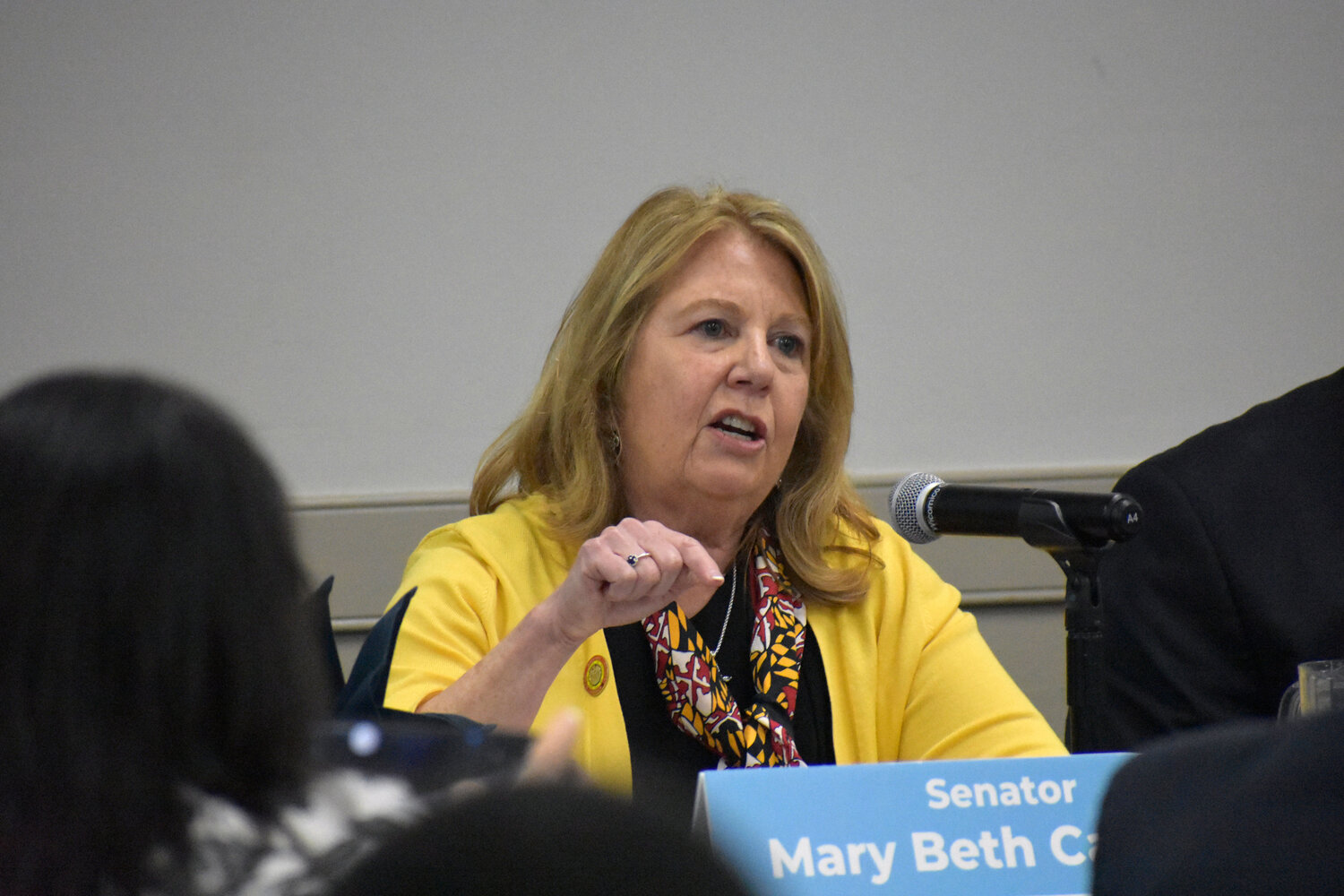Eastern Shore delegation members touch on education, housing and other topics during legislative forum
SALISBURY — A myriad of topics were discussed among Maryland’s Eastern Shore delegation members during the annual legislative wrap-forum hosted by the Salisbury Area Chamber of Commerce …

You must be a member to read this story.
Join our family of readers for as little as $5 per month and support local, unbiased journalism.
Already a member? Log in to continue. Otherwise, follow the link below to join.
Please log in to continue |
Eastern Shore delegation members touch on education, housing and other topics during legislative forum
SALISBURY — A myriad of topics were discussed among Maryland’s Eastern Shore delegation members during the annual legislative wrap-forum hosted by the Salisbury Area Chamber of Commerce on April 24.
Senators and House of Delegates members recapped the recently ended General Assembly session to local business leaders, elected officials, and members of the public at the Wicomico County Youth and Civic Center. Some of the topics the delegation touched on were education, housing, development and other issues affecting the region during the nearly-hour event.
“It’s exciting to see all three sections of this room open,” said Zach Evans, chairman of the chamber’s board of directors, who moderated the forum. “I remember when we were lucky to be able to fill one and a half and now, we are using the entire space. It’s also important that we remember we have an opportunity to stay engaged and this is one of those opportunities.”
Starting the forum, members of the Eastern Shore delegation were asked what they would like to be remembered for.
State Sen. Johnny Mautz said he wants to be remembered for standing up for things important to the Eastern Shore, like oyster management.
“Not always are those things a priority in Annapolis,” Mautz said.
Education
Members of the delegation were asked how the General Assembly plans to meet the funding requirements for the Blueprint for Maryland’s Future program through 2034. The program is a set of policies designed to transform the state’s public schools and early childhood programs.
“From the very beginning, I talked about that it has to be local control, parental involvement not one size fits all and affordable,” Senator Mary Beth Carozza said. And right now, we are looking at a Blueprint education plan that’s close to $4 billion per year. So, the only way to be able to move forward with the Blueprint is to extend the timelines."
State Del. Carl Anderton Jr. echoed Carozza’s proposal to extend the timeline. He said he supports an annual fee on electric vehicles for the right to use public roads due to the weight of their batteries.
Housing
The delegation was asked about passing House Bill 693, or the Renters Rights and Stabilization Act of 2024. Some of the delegation who are landlords said the measure would negatively affect housing in the state.
“As I look at all of these bills that have gone across this year, it’s an example to me where in Annapolis, we want to say one thing and we legislate the other way,” state Del. Tom Hutchinson said. “We went into Annapolis about how affordable housing is a priority to the governor and then we came out with all of these bills that screw the landlord.”
State Del. Wayne Hartman said the passed bill limits the amount of a security deposit one can charge and increases the cost of filing an eviction from $8 to $43 for the initial filing. He said if it goes to circuit court, it goes from $55 to $85.
“It’s having the opposite effect of what they’re trying to accomplish,” Hartman said. “It’s making fewer landlords and raising the cost of housing in Maryland.”
Local business owner Michael Weisner attended the forum and hopes the General Assembly next year will come up with a better solution that helps everyone involved in the housing process.
“I think it was definitely a year that the General Assembly sided with the tenants on almost every issue,” Weisner said. “And there really needs to be two sides to every issue, not just one. If you only listen to one side, you are not going to get a good compromise or a workable solution.”
Development
Members of the delegation were also asked about the future of solar power and the possible effects on farmers due to the Eastern Shore “being flat, open and full of comparatively cheap land.”
“Down here, we don’t have the grid to carry that electric back,” Hartman said. “There are not the large industrial users that could absorb all the daytime electricity that’s produced. So, it doesn’t make sense to do it here.”
Sales tax
One bill during this year’s session that did not come to fruition was House Bill 1515, which would have expanded the state’s sales tax to everyday services including grocery delivery, plumbing, landscaping, haircuts, dry cleaning and others.
“The minute you start trying to pass taxes like that, it signals the following,” state Del. Chris Adams said. “That I am irresponsible and unwilling to have a serious conversation about overspending.”
Reach Managing Editor Richard Caines at rcaines@iniusa.org.


 By
By 



